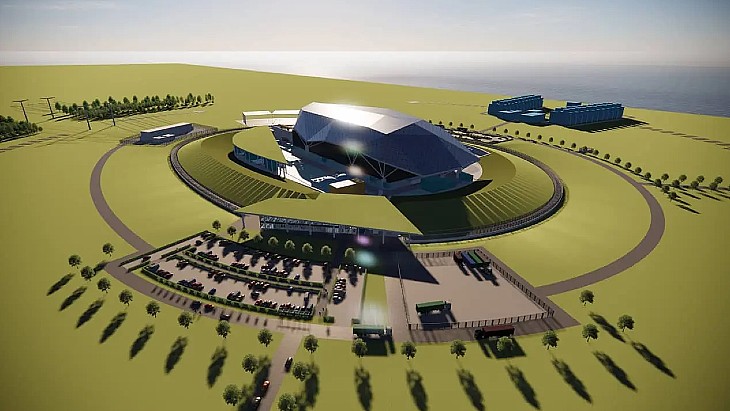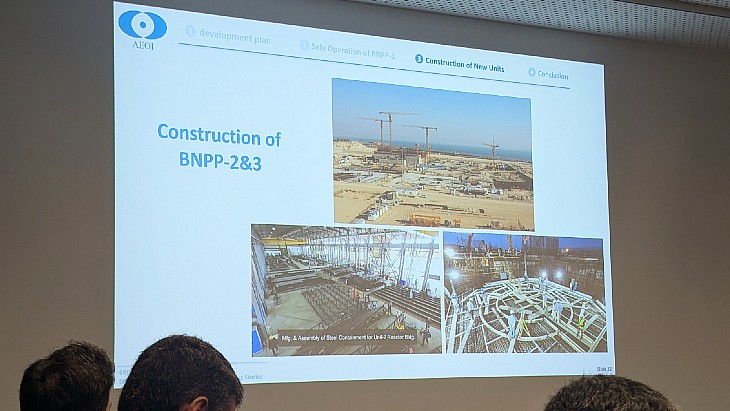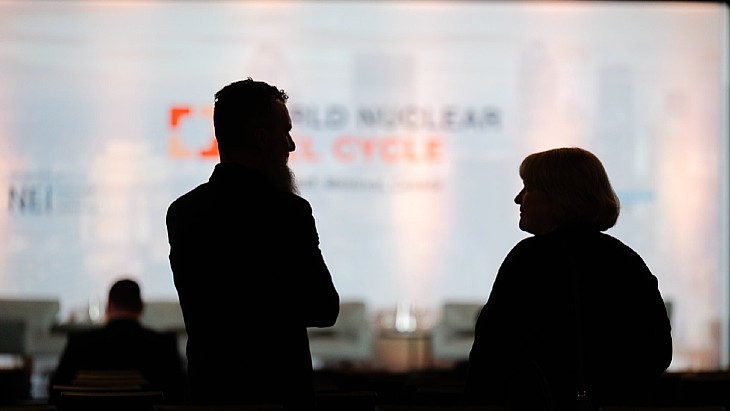Regulator approves licences for new Florida units
 The US Nuclear Regulatory Commission has approved the issuance of combined construction and operating licences for the two proposed AP1000 reactors at Florida Power and Light's Turkey Point plant in Florida. The utility has yet to make a final decision on whether to proceed with building the units.
The US Nuclear Regulatory Commission has approved the issuance of combined construction and operating licences for the two proposed AP1000 reactors at Florida Power and Light's Turkey Point plant in Florida. The utility has yet to make a final decision on whether to proceed with building the units.
The US Nuclear Regulatory Commission (NRC) has approved the issuance of combined construction and operating licences (COLs) for the two proposed AP1000 reactors at Florida Power and Light's (FPL's) Turkey Point plant in Florida. The utility has yet to make a final decision on whether to proceed with building the units.
.jpg) |
| How Turkey Point 6 and 7 could appear adjacent to the existing plant (Image: FPL) |
FPL has been officially planning to expand nuclear generation at Turkey Point since 2006, when it informed the NRC that it intended to file COL applications for new units. It submitted the application in June 2009, and in 2011 the Florida Public Service Commission (PSC) allowed FPL to add a small charge to its customers' bills to fund the nuclear investment.
The NRC issued its final environmental impact statement for Turkey Point units 6 and 7 in October 2016. Its final safety evaluation report was issued the following month.
The NRC announced yesterday that it has authorised its Office of New Reactors to issue the COLs for Turkey Point units 6 and 7 to FPL. The decision follows a hearing last December. The Commission found the staff's review of FPL's application adequate to make the necessary regulatory safety and environmental findings. The NRC said it expects to issue the licences in the next few days.
In a June 2017 filing to the Florida PSC, FPL said that upon receipt of the COLs it "intends to pause the project to observe and understand the challenges faced by the first wave of AP1000 projects currently under way". This pause is estimated to be at least four years, the company said, which will push the commissioning and start-up dates for Turkey Point 6 and 7 from 2027 and 2028 to at least 2031 and 2032, respectively.
FPL said, "During this pause period, FPL will be engaging in activities necessary to defend and maintain COL-associated permits, licences, certifications, and approvals. FPL's staff of licensing engineers will oversee the incorporation of licence amendments approved for other AP1000 projects."
According to FPL, maintenance activities also include continuing compliance with the Conditions of Certification or other permit conditions and collecting lessons learned from the first wave of AP1000 projects.
"Additionally, FPL will be assessing execution structure, contract price, terms and conditions, and schedule of the first wave projects to assess improvements to costs and schedules. FPL also plans to monitor economic factors that could affect the decision to proceed with construction," it said.
Two AP1000 units are under construction at both the Sanmen and Haiyang sites in China. Sanmen 1 is expected to be the first Westinghouse AP1000 to begin operating later this year. Haiyang 1 and Sanmen 2 are also expected to begin operating by year-end, with Haiyang 2 expected to start up in 2019. Four AP1000 reactors were also being built in the USA - two each at Vogtle and Summer. However, construction of the two Summer units was suspended in August. Vogtle unit 3 is scheduled to enter commercial operation in November 2021, with unit 4 following in November 2022.
The Turkey Point site, about 40km south of Miami, already features two operating 800 MWe reactors built in the 1970s. Unit 3 is currently licensed to operate until July 2032 and unit 4 until April 2033. The site also includes three gas-fired units.
FPL submitted an application in January seeking to renew for an additional 20 years the operating licences of Turkey Point 3 and 4, which have already been renewed once. The application is the NRC's first "subsequent licence renewal" application and if granted would enable the reactors to achieve operating lives of 80 years.
Researched and written
by World Nuclear News
_92619.jpg)

_84504.jpg)







_50521.jpg)

